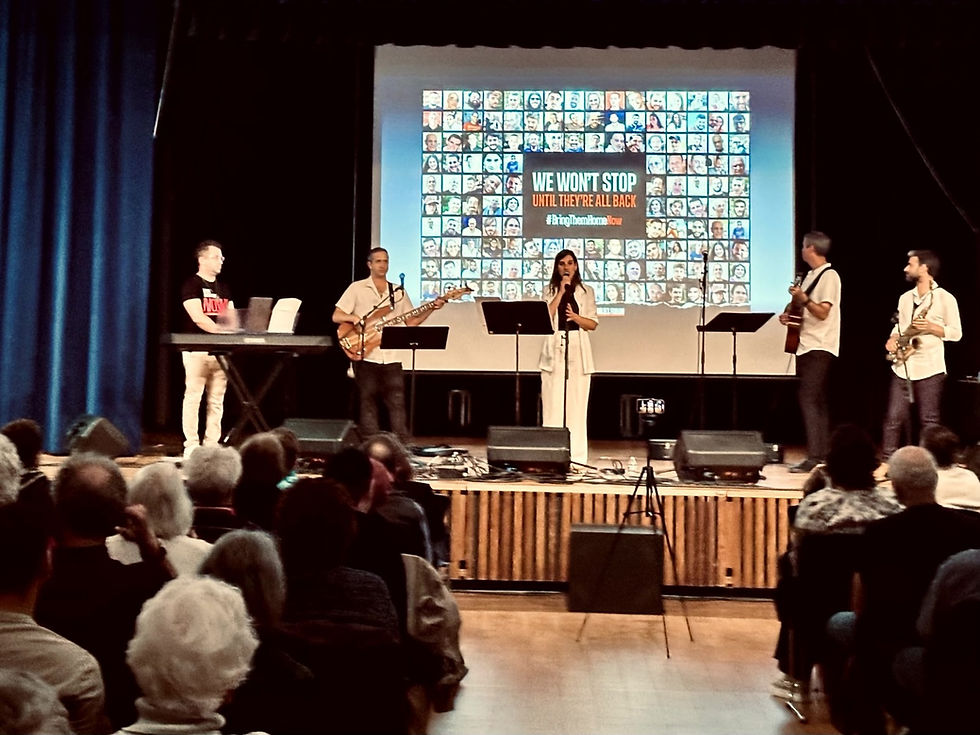Dror Israel educators in Ashkelon volunteer in bomb shelters
- Mirit Sulema

- May 12, 2021
- 3 min read
In the southern city of Ashkelon under constant bombardment from Gaza, the local Dror Israel educators’ community has sprung into action in partnership with the local municipality, to volunteer with children and families in the city’s public shelters.
New homes in Israel are required to be built with protected rooms, where families can stay safe during days and hours of rocket attacks. However, many older buildings and neighborhoods lack such safe rooms, and with only 30 seconds to take cover once a siren sounds, running to a basement or neighborhood shelter is not feasible – especially for families with small children and seniors or others who have a hard time moving quickly.
Therefore, some people choose to spend the days and nights at the public shelters, especially in the older and lower income neighborhoods.
And with schools closed, working parents may not have anyone to watch their kids.

In these circumstances, the city reached out to Dror Israel to staff the shelters by watching the kids so parents can go to work, or just talking to and playing with the kids while their parents take care of things or take a break from childcare. And – for better or for worse – with years of experience at this type of thing, Dror Israel educators have the training and knowledge to talk to kids and adults to help keep stress levels down.
Dror Israel was asked specifically to work in five shelters the city considered to be complex – meaning higher numbers of people expected at the shelters, and more diverse populations of adults, kids, babies, olim of various communities, both secular and religious Jews, and Arabs – with a higher possibility of tension or conflict between them in the confined space of the shelters, against the backdrop of the military operation as well as the ongoing ethnic riots throughout the country.
Dror Israel educators reported after a long day in the shelters:
“All types of people come to the shelters – from all communities and religions. The shelters have to include everyone and everyone needs to learn to get along. I was at a shelter with both Jewish and Arab families who had to find a way to manage together. Sometimes they would fight but they had to reach understandings because the shelter is everyone’s safe space.”

“There’s something complicated about being in a shelter in your own city – something about seeing all of the tension, violence and extremism laid bare and the anger and exhaustion of the people. At the same time, I went to shelter as a kind of outside volunteer even though we are experiencing the same things only a few block away. We are also afraid, exhausted and trying to find comfort in being together. Volunteering at the shelter also gives me a feeling of meaning and accomplishment in this difficult situation.”
“I met a five year old girl who hasn’t been sleeping at night and was making siren sounds every few minutes. You can see how the situation has affected her, her parents, and everyone around. Just playing checkers with her was a huge help to both her and her parents – the parents got a moment of quiet and she had some fun.”
“We were playing monopoly at the shelter when there was a siren. One of the children had just gone home to make popcorn and all of the neighbors in the shelter were so concerned and worried until he got back. Even though we are used to it, each siren catches us unprepared and makes it hard to manage even the smallest everyday tasks in life.”
Here’s to hoping that this will be over soon and we won’t be needed for even one more day!




Comments